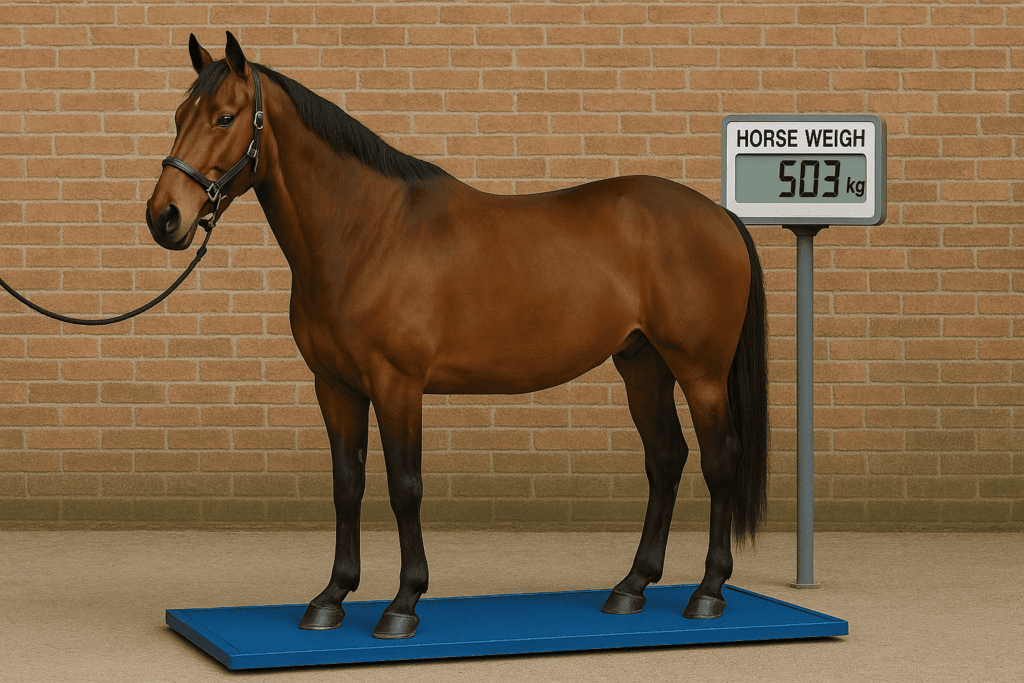Why Horse Weight Matters
Horses amaze us. They stand for power, freedom, and friendship. You might ride them, own one, or just love animals. Knowing how much a horse weighs is important. It affects their health, how they perform, what they eat, and even the gear they wear.
Think about saddling a horse. If the saddle doesn’t fit right, the horse could get hurt. Or think about medicine. Too much or too little can harm them. From racehorses to gentle therapy horses, weight matters a lot.
But how much does a horse weigh? It depends. Breed, age, food, and even the time of year change their weight. This guide will explain horse weights, how to measure them, and why it’s so important.
Horse Weight by Breed
Horses come in many sizes. Some are big and strong. Others are small and fast. Here’s how much different types weigh.
1. Light Horses (900–1,500 lbs)
These horses are fast and agile. They race, jump, and ride for fun.
- Arabian Horse: 800–1,000 lbs
- Thoroughbred: 900–1,200 lbs
- Quarter Horse: 950–1,200 lbs
2. Draft Horses (1,500–2,500+ lbs)
These are the giants. They pull plows and heavy loads.
- Percheron: 1,800–2,600 lbs
- Clydesdale: 1,800–2,200 lbs
3. Ponies (400–900 lbs)
Small but tough. Great for kids and small farms.
- Shetland Pony: 400–450 lbs
- Welsh Pony: 500–800 lbs
4. Mini Horses (150–350 lbs)
Tiny and cute. Mostly pets or show animals.
- Falabella: Under 200 lbs
What Changes a Horse’s Weight?
A horse’s weight can go up or down. Here’s why:
1. Age
- Baby horses (foals): 100–150 lbs at birth.
- Young horses (yearlings): Grow fast.
- Adult horses: Reach full size by age 5–7.
- Old horses: May lose weight.
2. Food
- Good food keeps them healthy.
- Too much food makes them fat. Too little makes them thin.
3. Exercise
- Active horses (like racers) stay lean.
- Horses that don’t move much may gain weight.
4. Health Problems
- Sickness can make them lose weight.
- Some diseases make them gain too much.
5. Seasons
- Horses often weigh more in summer (lots of grass).
- They may lose weight in winter.
How to Weigh a Horse
Most people don’t have a horse scale. Here are easy ways to guess their weight.
1. Weight Tape
- Wrap a tape around the horse’s belly.
- Fast but not perfect.
2. Body Check (BCS)
- Look and feel their ribs and back.
- Helps tell if they’re too fat or too thin.
3. Math Method
- Measure their belly and length.
- Use this formula:
(Belly size x Belly size x Length) ÷ 330 = Weight in lbs
4. Scale
- The best way, but you need a big scale.
Why Weight Matters
1. Feeding Right
- Horses need 1.5–3% of their weight in food each day.
- Too much grain can make them sick.
2. Medicine Safety
- Too little medicine won’t work. Too much can hurt them.
3. Gear Fit
- Saddles must fit well. Bad gear causes pain.
4. Travel Safety
- Trailers have weight limits. Too heavy is unsafe.
5. Health Checks
- Sudden weight loss can mean illness.
- Fat horses can get sick easier.
A horse’s weight tells you a lot. It helps keep them healthy and happy. Whether your horse is big or small, knowing their weight is key to good care.
Next time you see a horse, think about how much goes into keeping them at the right weight. It’s all about balance!

